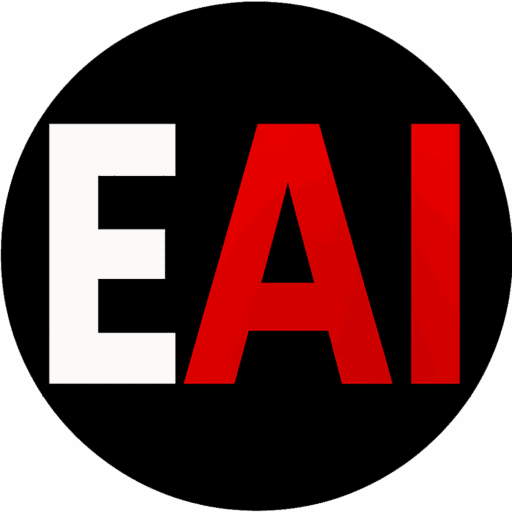05 August 2025
As artificial intelligence gains ground in the recruitment process, many job seekers have expressed frustration at encountering AI-powered interviewers instead of human ones. This shift towards automated interviewing systems highlights an increasing dependence on AI for hiring decisions, but it also raises important questions about its impact on job candidates and the future of human resources.
Artificial intelligence is being integrated into various facets of business, and recruitment is no different. Recruiters use AI systems to screen resumes, conduct preliminary interviews, and recommend the best candidates. The potential benefits of AI are clear: scalability, consistency, and the ability to process large volumes of data quickly. However, job seekers often feel alienated by this experience, as the personal touch of human interaction is lost.
Many applicants argue that these AI systems cannot fully grasp the nuances of human communication, potentially leading to misinterpreted responses and overlooking qualified candidates. Furthermore, concerns about transparency and fairness in AI algorithms add to the unease. While companies seek to streamline hiring processes, they must also consider the human elements that make interviews meaningful for both parties.
Ethical Implications and Bias in AI Systems
One of the most significant concerns regarding AI in recruitment is the potential for bias. Although AI systems are ostensibly neutral, they are trained on existing data sets that may inadvertently reflect human prejudices. A 2018 study revealed that some AI recruitment tools developed a preference for male candidates due to historical hiring data biases. As companies increasingly rely on these tools, the risk of perpetuating existing inequalities becomes a troubling reality. It underscores the importance of continuously auditing and updating AI systems to ensure fairness and equality in hiring processes.
Ethical considerations also extend to candidate privacy and consent. With AI systems capable of extracting detailed insights from video interviews and online profiles, there are growing concerns about how this data is used, stored, and protected. Organisations must balance leveraging AI’s capabilities with respecting candidate privacy and maintaining trust.
Bridging the Gap: Human-AI Collaboration
While the challenges are evident, the potential for AI to enhance the recruitment process should not be overlooked. AI can efficiently manage the initial stages of recruitment, allowing human interviewers to focus on deeper, more complex evaluations during the final stages. This approach combines the strengths of AI and data processing with human qualities such as empathy and intuition.
Some companies are already experimenting with hybrid models, where AI tools provide preliminary assessments, and human recruiters are involved in decision-making. This collaboration can lead to more informed hiring decisions, as AI aids in filtering options while allowing for a personalised candidate experience.
Adapting to the Future of Recruitment
To navigate the evolving landscape of AI in job interviews, both candidates and companies must adapt. For candidates, this might mean familiarising themselves with AI-driven interview platforms and preparing technically tailored responses that align with algorithmic evaluations. On the other hand, organisations must invest in developing unbiased and transparent AI systems, ensuring they complement rather than replace human judgement.
Education and training will play critical roles in ensuring both recruiters and candidates can benefit from AI advancements. As AI continues to integrate into the recruitment process, understanding its capabilities and limitations is crucial for all stakeholders involved. Ultimately, the future of job interviews could see AI as a powerful tool that, when used ethically and judically, enhances the recruitment landscape while preserving the human touch.
Key Data Points
- AI is increasingly used in recruitment for tasks such as resume screening, preliminary interviews, and candidate recommendations, offering scalability, consistency, and speed in processing applications.
- Job applicants often feel alienated by AI interviewing systems due to the loss of human interaction and the AI’s potential to misinterpret nuanced human communication.
- Bias in AI recruitment tools is a significant concern, as AI systems trained on historical data may perpetuate existing inequalities, such as favouring male candidates.
- Privacy issues arise from AI’s ability to analyse detailed candidate data during video interviews, raising questions about data use, storage, and candidate consent.
- Hybrid recruitment models combining AI for initial screening with human judgment in later stages are emerging to balance efficiency with empathy and intuition in hiring.
- Candidates are adapting by preparing for AI-driven interviews and tailoring responses to algorithmic evaluations, while organisations focus on developing unbiased, transparent AI systems.
- Studies show AI-led interviews can outperform traditional methods, improving candidate filtering, interview quality, and consistency, with benefits especially for younger and less experienced candidates.
- AI in recruitment can significantly reduce costs and hiring times by automating early stages and allowing recruiters to focus on high-potential candidates.
- Despite AI’s efficiency in skill assessment, human interviewers remain essential for evaluating cultural fit and complex interpersonal factors.
- The global AI in HR market is rapidly growing, with many organisations shifting from experimenting with AI tools to strategically integrating them within recruitment processes.
- There is resistance from some recruiters against candidates using AI-generated resumes or cover letters, reflecting ongoing tensions about AI’s role in hiring from both employer and applicant perspectives.
- Ethical AI adoption in recruitment requires continuous auditing to avoid bias, respect for candidate privacy, and thoughtful implementation to complement rather than replace human judgement.
References
- https://www.haystalentsolutions.com/-/ai-in-recruitment-what-is-the-impact-
- https://www.governmentevents.co.uk/ge-insights/ai-in-recruitment-current-trends-efficiency-and-future-prospects/
- https://www.forbes.com/sites/keithferrazzi/2025/03/27/the-ai-recruitment-takeover-redefining-hiring-in-the-digital-age/
- https://www.shrm.org/executive-network/insights/the-impact-of-ai-on-talent-acquisition-and-recruitment
- https://www.linkedin.com/pulse/ethical-considerations-ai-driven-recruitment-detailed-guide-q56ze
- https://vidcruiter.com/interview/intelligence/ai-bias/
- https://www.jobtwine.com/blog/data-security-and-privacy-in-ai-interviews/
- https://www.index.dev/blog/human-ai-talent-acquisition
- https://www.oleeo.com/blog/how-is-ai-changing-recruitment/

EfficiencyAI Newsdesk
At Efficiency AI Newsdesk, we’re committed to delivering timely, relevant, and insightful coverage on the ever-evolving world of technology and artificial intelligence. Our focus is on cutting through the noise to highlight the innovations, trends, and breakthroughs shaping the future from global tech giants to disruptive startups.

